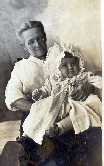
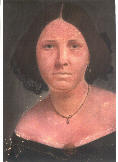
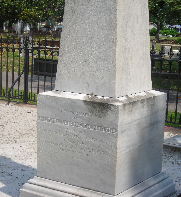
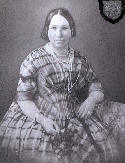
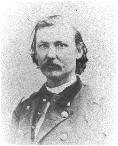
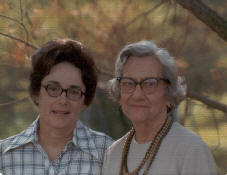
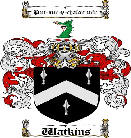



Watkins Crest Mary Eliz. MARTHA WATKINS DeLaigle, and her headstone Gen. Louis D. Watkins (Union) Virginia DeLaigle Hopkins, Rebecca Hopkins Jackson Jeanne McClure Sanders& Helen Jackson McClure and Virginia Sanders

Walton Family, continued (page 7)
The children of Robert Walton (II) and Mary Hughes, four children
The “Signer” and his Siblings (continued)
The “Signer” and his Siblings (continued)
George Walton, signer of the Declaration of Independence, was the fourth child of Robert Walton and Mary Hughes. George was born 1749 in Farmville, Cumberland County, VA. He died 2 Feb 1804 in Augusta, GA, and is buried under the “Signers Monument” across from the Richmond County Courthouse in Augusta. [Note: George was first buried on his nephew Col. Robert Watkins’ plantation, “Rosney,” but his body was removed to be buried under the monument. No current trace of the Watkins family cemetery at Rosney has yet been found]
There are no living direct descendants of George Walton. George's father, Robert, died in 1750 and his aunt and uncle, Martha Hughes (sister of Mary Hughes) and George Walton, raised him. George Walton (cousin of Matthew Walton), was a Delegate and a Senator from Georgia. He was born near Farmville, Cumberland County, Va., in 1750 (some sources list his birth (erroneously) in 1741, the Masonic memorial plaque dedicated to George Walton in Augusta, Georgia lists 1749); attended the common schools; moved to Savannah, Ga., in 1769; studied law; was admitted to the bar 1774 and commenced practice in Savannah, Ga. He was secretary of the Provincial Congress in 1775 and a member of the committee of intelligence; member of the council of safety in 1775 and later president of that body; member of the State house of representatives; member of the Continental Congress 1776-1781; a signer of the Declaration of Independence and of the Articles of Confederation; (He was the second signer to be imprisoned; see notes on his wife for information about her detention).
A Georgia Lawyer, he was first a 2nd Lieutenant (1st Georgia) 7 Jan 1776; 1st Lieutenant 5 July 1776; elected to Congress in February 1776; and a Colonel of the Georgia Militia commanding the First Georgian Regiment at the siege of Savannah in 1778. He was shot from his horse 29 Dec 1778, his leg shattered by an enemy ball, and captured. Some ten months later (Sept 1779), the British exchanged him for a Captain of the Royal Navy. Walton survived to live an active political life for 28 years after the signing.)
He became Governor of Georgia in 1779; (while Governor of Georgia in 1779 he took the side of Gen Lachlan McIntosh, the man who mortally wounded Declaration signer Button Gwinnett in a duel. George was accused of forging a letter to Congress in connection with McIntosh's military service, and four years later was censured by resolution of the Georgia State legislature. This same body chose him chief justice of Georgia one day prior to the censure. He was commissioned to treat with the Indians at Easton, Ga. and to negotiate a treaty with the Cherokees in Tennessee in 1783; Chief Justice of Georgia 1783-1786; member of the Augusta Board of Commissioners in 1784 and 1785; represented Georgia in the settlement of the boundary line between South Carolina and Georgia in 1786; elected as a delegate to the convention to frame the Federal Constitution in 1787, but declined; again Governor of Georgia in 1789; was appointed first judge of the superior courts of the eastern judicial circuit in 1790; chairman of the reception committee and delivered the address of welcome upon the occasion of President Washington's visit to Augusta in 1791; again chief justice of Georgia in 1793; appointed to the United States Senate to fill the vacancy caused by the resignation of James Jackson and served from November 16, 1795, to February 20, 1796, when a successor was elected; trustee of Academy of Richmond County and of the State University at Athens; (named in his honor are the County of Walton, Georgia and George Walton Lodge no. 699, Augusta, Georgia.); moved to Augusta; appointed judge of the middle circuit of Georgia and served from 1799 until his death at his home, "Meadow Garden," near Augusta, Richmond Co., Ga., February 2, 1804; interment in Rosney Cemetery; re-interred in 1848 beneath the monument in front of the courthouse on Greene Street, Augusta, Ga. (source: Biographical Directory of the American Congress, 1774-1949 Biographies W page 1973 )
Wilmer Kerns wrote: "George Walton, son of Robert and Mary (Hughes) Walton II, was born in December 1749 in Cumberland County, Virginia, and died Feb. 2, 1804 in Georgia. George's father's Will referred to his unborn son as "the child my wife now goes with." The orphan's account shows that George was well-clothed, and had a Bible and books to read as well as private instruction. For example, in 1758, a Mr. Martin was paid one pound of currency for one year of schooling. John Hughes was named as the guardian for George Walton in September 1760. Hughes kept the slaves that were to be equally divided between George and Sally Walton by their father's will. His namesake, Uncle George Walton, oversaw his education and welfare until 1769, when he moved to Georgia to practice law. This George of Robert Walton Sr. became a close friend of Patrick Henry, who was also the family's attorney. George Walton married Dorothy Camber in 1775. Dorothy died in [ Pensacola, Florida -where she is buried] in the home of her only son, Col. George Walton, Jr., Sept. 12, 1832. At the age of 30, George Walton became the first governor of Georgia (1779-1780). He also held the distinction of being a Signer of the Declaration of Independence, and the first U. S. Senator elected in Georgia, in 1795. Walton County, Georgia was named for him."
Edward J. Cashin, wrote in his "Story of Augusta" 1980, page 44, regarding George Walton, Robert Watkins, and Thomas Watkins: "During the 15 years after the war, the single most influential person in shaping Augusta's history was George WALTON. Since 1779 when he was Governor in Augusta, Walton had envisioned a rapidly expanding back-country with Augusta as the hub. We have mentioned his prediction in 1783 that Augusta would be the great mart for the country to the north and west. Walton helped write the 1780 legislation which outlined a modern plan for Augusta and provided free land in the back-country. He was on the first commission charged with executing the law and was named again when the commission was re-created in 1783. Therefore he was instrumental in laying out streets, selling lots, letting out contracts to build a new church and a bridge, hiring a schoolmaster and launching Richmond Academy, and tending to a dozen other details. He did his best to get the State University, chartered in 1784, for Augusta, suggesting that the Hill would be a healthy place, far enough removed from 'the Varieties, tumults and vices of a large town," and he had no doubt that Augusta would become a large town. He was instrumental in shaping the growth of the Hill area also; his 250 acre tract of land on the crest of the Hill was divided into lots by the surveyor Levin Wailes. Walton called the development "College Hill" and established a summer residence there, very likely were, by coincidence, the George Walton Apartments were built after the First World War Walton had other extensive land grants, most of which he had to mortgage and eventually lost. Even before 1788 when he announced that he was officially establishing residence in Augusta, WALTON stayed with his nephew, ROBERT WAKINS at ROSNY, near New Savannah. In January, 1788, WALTON and WATKINS were two of those cited by the road commissioners for not putting slaves to work on the public road from Augusta to Sprit Creek. When he was chosen governor under the new Constitution, he must have decided that he needed a place of his own. By August of that year the "Governor's Plantation" is described as lying above Call's Warehouse in Springfield. WALTON must have rented the property which he called 'Meadow Garden' and in order to keep it in the family he arranged for his nephew THOMAS WATKINS to buy the estate and hold it for George Walton, Jr. This transaction occurred in 1791.”
George Walton married Dorothy Camber, the daughter of Thomas Camber and Dorothy Butler, in 1775. Her exact birthdate is unknown, but is calculated to have been born in 1757. She was 75 when she died on 12 September 1832, in Pensacola, Florida, [at the home of her only surviving child, Col. George Walton. She is buried in Pensacola.
There was a lovely article about Dorothy Camber Walton written in the Augusta Chronicle, September 5, 1954:
DOROTHY CAMBER WALTON, by Maey Carter Winder:
“In reading about men and women who have left their imprint on history one frequently gain no conception of them as people of vitality who once lived, loved, and worked as do the flesh-and-blood people of today. History, however is nothing more than a record of what living men and women do to express their dreams, their hopes, their ambitions and their innate character. Sometimes the story of a single individual can be as fascinating as any fictional tale that portrays the romance and adventures of a hero or heroine whose deeds seem to be outside the realm of routine living. Unfortunately, however, history as it has been written generally fails to capture 'the vividness of past events.
Because of this many an interesting story is lost, sometimes irretrievably. and finally, even the very names of those who made past history are often erased from memory. Few people in Augusta today, for instance, would know who Dorothy Camber Walton was and why her name has any claim to be remembered. Yet Dorothy Camber Walton's life was filled with romance and adventure, and was touched as well by. .the reflected glory of the great achievement of the Signers of the American Declaration of Independence.
She was the wife of George Walton of Augusta, one of the Georgia Signers of that historic document. In order to marry the Georgia patriot, she defied her British father and cast in her lot with those who had dedicated themselves to the creation of a free and sovereign United Slates of America.
She was the daughter of Thomas Camber, Esquire, who came to North Carolina from East Essex, England. shortly before the American Revolution began. She had two sisters and three brothers. Ann Sarah Camber, Mary Hannah Camber, James Camber, Joseph Camber, and John Camber. Ann Sarah Camber married John Habersham and from them are descended some present-day Augustans. Thomas Camber moved later to Georgia, having received from the British king a grant of 1100 acres on Great O'Geechee river in South Georgia.
ROMANCE BEGINS: He was living in Savannah at the time his daughter Dorothy met George Walton, who had gone to Savannah to attend a meeting of patriots who were determined to wrest their freedom from the British crown. Her father, loyal to the Crown, forbade her marriage who to him was a traitor to the king. Dorothy was then a teenage girl, attractive, poised, and marked by dignity and decorum of a well bred British woman. She was apparently mature for her years, possessed of an unusually fine mind, warmed by a great capacity for love and loyalty, and capable of firm decisions. Eve her father's wrath could not halt her romance with the young George Walton and they were married on June 16. 1806. (This is not correct - their first son was born in 1776)
Refugee from war: George Walton died when he only 55 years old, and his wife later moved to Pensacola, FL, when her son, George Walton, II - in 1821 - was appointed territorial secretary for West Florida, becoming later acting governor of Florida, succeeding Andrew Jackson to the post. Before she reached that period of peaceful living, her days were surrounded by turbulence. When the battles in and around Augusta made it unsafe for women to remain in their homes, Mrs. Walton refugeed to South Carolina. As the fighting moved towards Charleston, she started back to Georgia, to finding a haven of safety at old Sunbury. But violent events intervened.
The journey back to Georgia was made by water. Dorothy Camber Walton started out in a small sloop which was captured by a British man-o-war and taken in tow as a war prize. Dorothy was transferred to the war ship, which headed toward England. En route a severe hurricane swept the sea and the ship was driven ashore on the Danish island of St. Eustacia. There Dorothy Walton was cared for by the British consul. In the meantime, it had been reported that she had been drowned at sea because the ship in which she had started out from Charleston had gone down in the hurricane. The news brought much sorry to her many friends, who later rejoiced when they learned she had been saved because of the transfer to the British ship. Little else is known of her life in those years, and not too much even about her life in Pensacola.
MOVES TO PENSACOLA.: The house in which she lived In Pensacola is still standing. It is on West 137th St., at the foot of spring St., just east of Barcelona St. It is now owned by T. T. Wentworth of Pensacola, who converted it in 1938 into the Dorothy Camber Walton Museum and gathered there all the information and mementos that he could find. In this home Mrs. Walton and her son frequently entertained Andrew Jackson during the time he was governor of West Florida and other notables and friends were often in their home. Originally the house stood in the midst of large grounds which extended, it is believed, even to the shores of the sea, which has since receded from its former boundaries. It is believe, also, that the present house was part of a larger structure that was demolished in earlier years. What is left now is a simple little cottage with a wide front verandah, the front, apparently having had some modern alterations.
A GRACIOUS HOME. The house and its grounds were well-loved by Octavia Walton LeVert, granddaughter of Dorothy Camber Walton. In her journal, Madame LeVert wrote of "the orange and live oak trees shading the broad veranda; of the fragrant acacia, oleander and Cape Jasmine trees, which filled the parterre sloping down to the sea beach." From various writings, it is obvious that Dorothy Camber Walton was widely known, and that she had admirers in the North as well as in the South. When the Marquis de Lafayette visited Georgia in 1824, it was of Dorothy Camber he first asked, declaring that it was his one desire to see again that beloved friend of other and more troubled years. She was then too feeble to journey forth to meet the distinguished Frenchman who had rendered such valuable aid to the American cause during the Revolution, but her granddaughter, Octavia, bore her greetings to the aging marquis.
DEATH OF THE SIGNERS WIFE: Dorothy Camber Walton survived her signer husband by 28 years. She was 75 years old when she died September 12, 1832., which means she was born in 1757. She is buried in Old St. Michael's Cemetery in Pensacola, FL where an ancient stone wall encloses her grave. At one end of the wall is a bronze memorial plaque, placed there in 1929 by the Pensacola Chapter of the DAR. It bears only a simple inscription: " In Memory of Dorothy Walton, wife of George Walton, a Signer of the American Declaration of Independence," followed by the Chapter name.
The funeral notice that appeared in the newspapers was equally simple. Printed in both Spanish and English, it read: "Wednesday, September 12, 1832 - The friends and acquaintances of Col. George Walton are respectfully requested to attend the funeral of his deceased mother, MRS. DOROTHY WALTON, this afternoon at 4 o'clock."
And so ended a long life to which romance and love, war and glory, adventure and - at last peace - gave the quality of a great heroic novel. Hers was a very human story but there was indeed nothing of drabness in it. She gave of herself to others in her later years and drew on her own great store of intellectual interests to create for her children a vivid awareness of the beauty of life itself and the grandeur of great ideals. To them she transmitted a profound feeling for the heritage of glory that was theirs by reason of the fact that they were citizens of a new and great Republic, created out of the dreams and sacrifices of American patriots who believed that there is no substitute for liberty.
It is right and proper that her memory be cherished throughout the years to come - especially in Augusta where little has been know about her and where today the luster of her patriotism is only dimly reflected because men like the Signers of the Declaration of Independence and women like Dorothy Camber Walton were willing to give their lives and their fortunes for the right to be free.
They and those who followed after them have died, but the flame of liberty can never be quenched. Again and again it lifts its light to guide mankind to heights of greater glory and new dawn of human glory."
October 17, 1832, Macon Weekly Telegraph: “DIED: At the residence of her only child, Col. George Walton, of Pensacola, on the 12th of September last, Mrs. Dorothy Walton, relict of the Hon. George Walton, one of the signers of the Declaration of Independence.”
There are no living direct descendants of George Walton. George's father, Robert, died in 1750 and his aunt and uncle, Martha Hughes (sister of Mary Hughes) and George Walton, raised him. George Walton (cousin of Matthew Walton), was a Delegate and a Senator from Georgia. He was born near Farmville, Cumberland County, Va., in 1750 (some sources list his birth (erroneously) in 1741, the Masonic memorial plaque dedicated to George Walton in Augusta, Georgia lists 1749); attended the common schools; moved to Savannah, Ga., in 1769; studied law; was admitted to the bar 1774 and commenced practice in Savannah, Ga. He was secretary of the Provincial Congress in 1775 and a member of the committee of intelligence; member of the council of safety in 1775 and later president of that body; member of the State house of representatives; member of the Continental Congress 1776-
A Georgia Lawyer, he was first a 2nd Lieutenant (1st Georgia) 7 Jan 1776; 1st Lieutenant 5 July 1776; elected to Congress in February 1776; and a Colonel of the Georgia Militia commanding the First Georgian Regiment at the siege of Savannah in 1778. He was shot from his horse 29 Dec 1778, his leg shattered by an enemy ball, and captured. Some ten months later (Sept 1779), the British exchanged him for a Captain of the Royal Navy. Walton survived to live an active political life for 28 years after the signing.)
He became Governor of Georgia in 1779; (while Governor of Georgia in 1779 he took the side of Gen Lachlan McIntosh, the man who mortally wounded Declaration signer Button Gwinnett in a duel. George was accused of forging a letter to Congress in connection with McIntosh's military service, and four years later was censured by resolution of the Georgia State legislature. This same body chose him chief justice of Georgia one day prior to the censure. He was commissioned to treat with the Indians at Easton, Ga. and to negotiate a treaty with the Cherokees in Tennessee in 1783; Chief Justice of Georgia 1783-
Wilmer Kerns wrote: "George Walton, son of Robert and Mary (Hughes) Walton II, was born in December 1749 in Cumberland County, Virginia, and died Feb. 2, 1804 in Georgia. George's father's Will referred to his unborn son as "the child my wife now goes with." The orphan's account shows that George was well-
Edward J. Cashin, wrote in his "Story of Augusta" 1980, page 44, regarding George Walton, Robert Watkins, and Thomas Watkins: "During the 15 years after the war, the single most influential person in shaping Augusta's history was George WALTON. Since 1779 when he was Governor in Augusta, Walton had envisioned a rapidly expanding back-
George Walton married Dorothy Camber, the daughter of Thomas Camber and Dorothy Butler, in 1775. Her exact birthdate is unknown, but is calculated to have been born in 1757. She was 75 when she died on 12 September 1832, in Pensacola, Florida, [at the home of her only surviving child, Col. George Walton. She is buried in Pensacola.
There was a lovely article about Dorothy Camber Walton written in the Augusta Chronicle, September 5, 1954:
DOROTHY CAMBER WALTON, by Maey Carter Winder:
“In reading about men and women who have left their imprint on history one frequently gain no conception of them as people of vitality who once lived, loved, and worked as do the flesh-
Because of this many an interesting story is lost, sometimes irretrievably. and finally, even the very names of those who made past history are often erased from memory. Few people in Augusta today, for instance, would know who Dorothy Camber Walton was and why her name has any claim to be remembered. Yet Dorothy Camber Walton's life was filled with romance and adventure, and was touched as well by. .the reflected glory of the great achievement of the Signers of the American Declaration of Independence.
She was the wife of George Walton of Augusta, one of the Georgia Signers of that historic document. In order to marry the Georgia patriot, she defied her British father and cast in her lot with those who had dedicated themselves to the creation of a free and sovereign United Slates of America.
She was the daughter of Thomas Camber, Esquire, who came to North Carolina from East Essex, England. shortly before the American Revolution began. She had two sisters and three brothers. Ann Sarah Camber, Mary Hannah Camber, James Camber, Joseph Camber, and John Camber. Ann Sarah Camber married John Habersham and from them are descended some present-
ROMANCE BEGINS: He was living in Savannah at the time his daughter Dorothy met George Walton, who had gone to Savannah to attend a meeting of patriots who were determined to wrest their freedom from the British crown. Her father, loyal to the Crown, forbade her marriage who to him was a traitor to the king. Dorothy was then a teenage girl, attractive, poised, and marked by dignity and decorum of a well bred British woman. She was apparently mature for her years, possessed of an unusually fine mind, warmed by a great capacity for love and loyalty, and capable of firm decisions. Eve her father's wrath could not halt her romance with the young George Walton and they were married on June 16. 1806. (This is not correct -
Refugee from war: George Walton died when he only 55 years old, and his wife later moved to Pensacola, FL, when her son, George Walton, II -
The journey back to Georgia was made by water. Dorothy Camber Walton started out in a small sloop which was captured by a British man-
MOVES TO PENSACOLA.: The house in which she lived In Pensacola is still standing. It is on West 137th St., at the foot of spring St., just east of Barcelona St. It is now owned by T. T. Wentworth of Pensacola, who converted it in 1938 into the Dorothy Camber Walton Museum and gathered there all the information and mementos that he could find. In this home Mrs. Walton and her son frequently entertained Andrew Jackson during the time he was governor of West Florida and other notables and friends were often in their home. Originally the house stood in the midst of large grounds which extended, it is believed, even to the shores of the sea, which has since receded from its former boundaries. It is believe, also, that the present house was part of a larger structure that was demolished in earlier years. What is left now is a simple little cottage with a wide front verandah, the front, apparently having had some modern alterations.
A GRACIOUS HOME. The house and its grounds were well-
DEATH OF THE SIGNERS WIFE: Dorothy Camber Walton survived her signer husband by 28 years. She was 75 years old when she died September 12, 1832., which means she was born in 1757. She is buried in Old St. Michael's Cemetery in Pensacola, FL where an ancient stone wall encloses her grave. At one end of the wall is a bronze memorial plaque, placed there in 1929 by the Pensacola Chapter of the DAR. It bears only a simple inscription: " In Memory of Dorothy Walton, wife of George Walton, a Signer of the American Declaration of Independence," followed by the Chapter name.
The funeral notice that appeared in the newspapers was equally simple. Printed in both Spanish and English, it read: "Wednesday, September 12, 1832 -
And so ended a long life to which romance and love, war and glory, adventure and -
It is right and proper that her memory be cherished throughout the years to come -
They and those who followed after them have died, but the flame of liberty can never be quenched. Again and again it lifts its light to guide mankind to heights of greater glory and new dawn of human glory."
October 17, 1832, Macon Weekly Telegraph: “DIED: At the residence of her only child, Col. George Walton, of Pensacola, on the 12th of September last, Mrs. Dorothy Walton, relict of the Hon. George Walton, one of the signers of the Declaration of Independence.”
George Walton and Dorothy Camber had two children:
1) Thomas Camber WALTON Esq. (b.1776 d.13 Dec 1803-
2) George, Jr. WALTON (b.15 Aug 1786-
sp: Sarah Minge "Sallie" WALKER (b.19 Jul 1792-
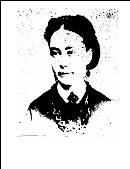
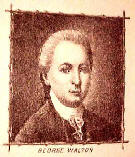
George Walton
And
Dorothy Camber
And
Dorothy Camber
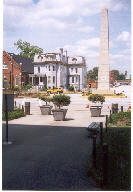
Picture taken from the steps of the Richmond County Courthouse, Augusta, GA, showing the “Signers Monument” (the obelisk) where George Walton is buried.
In the background is a DeLaigle home, which has since been renovated
In the background is a DeLaigle home, which has since been renovated
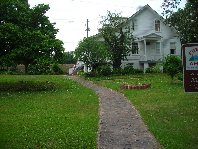
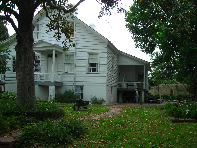
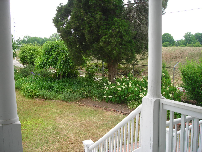
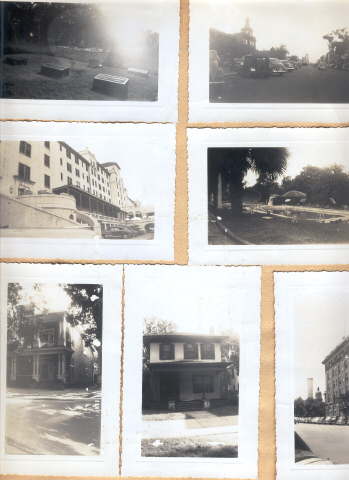
Some of my mother’s old pictures of Augusta....taken about 1950: